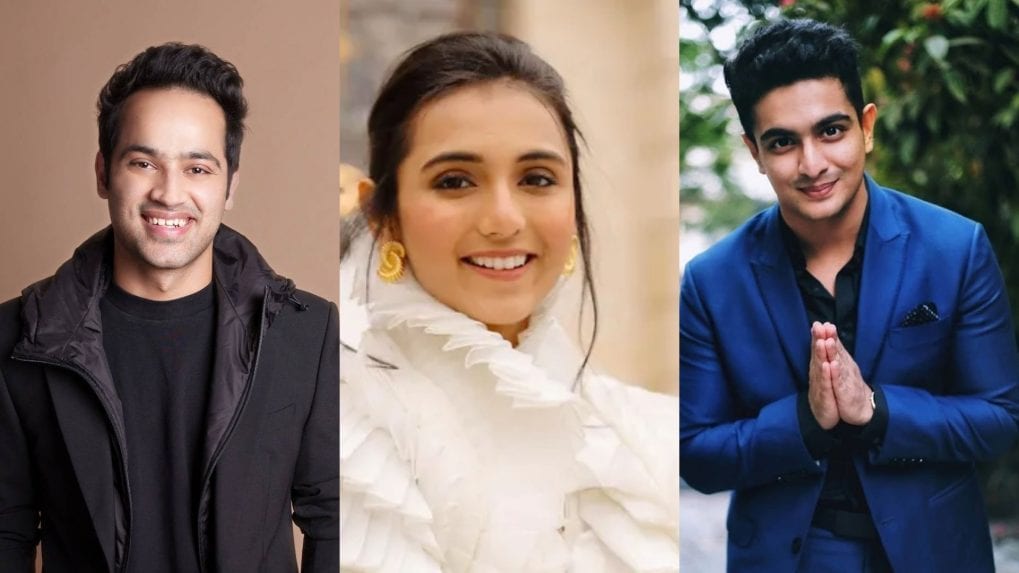Digital
Why OpenAI is hiring 100 ex-bankers: Inside the ChatGPT-maker's secret project to automate Wall Street's grunt work

“Influencers make poor founders,” Shantanu Deshpande, founder and chief executive of Bombay Shaving Company, declared in a LinkedIn post, questioning whether creators can translate personal brand equity into sustainable businesses. He argued that many influencers are distracted by the lure of social media validation, often prioritizing engagement and popularity over operational focus. “Influencers who want to build business? Find operators, structure equity that reflects fair value added, and see if that works,” he advised.
Vaibhav Gupta, co-founder and chief product officer at KlugKlug, a startup he launched in 2022 with former influencer Kalyan Kumar, acknowledged the concern. Still, he noted that some creators have successfully moved beyond the algorithm’s grip. These influencers, he said, “leverage their audience insights and focus on long-term goals beyond immediate social media metrics.”
Sreeram Reddy Vanga, chief executive and co-founder of Kofluence, an AI-driven influencer marketing firm, echoed both perspectives. He noted that creators who launched beauty or fashion brands did so initially because they lived within the category, not necessarily because they spotted a gap in the market. “Their knowledge coupled with visibility gave them the confidence to build something they could stand behind,” he said.
The conversation around influencer-led startups comes as India’s creator economy matures. According to Kofluence’s Decoding Influence report, the country has between 2.5 million and 3.5 million influencers, though only a fraction have attempted the leap into entrepreneurship.
Many, like Gupta and Kumar at KlugKlug, have focused on building deeper operational and technological capabilities. “We focused on creating a high-integrity product that could solve the blind spots in the industry—fake followers, irrelevant audience targeting, brand-audience misalignment and poor ROI clarity,” Gupta said. Their efforts won over large agency networks, including WPP, and helped position KlugKlug as a trusted partner for brands seeking influencer analytics.
Influencer-led startups often benefit from organic distribution and a direct line to engaged audiences, advantages most startups pay heavily to acquire. “They have a better instinctive grasp of what their audience wants,” Vanga said. However, he cautioned, “not all passion-led businesses scale.”
“Many end up competing in saturated markets without long-term moats. Their personal brand gives an initial halo, but that doesn’t replace product thinking, unit economics or a roadmap that isn’t tied to the founder’s face,” Vanga explained. The tension between audience expectations for authenticity and the business’s need for scalability can also create friction, he noted.
The path to sustainability, Vanga said, requires moving from “personality-driven to process-driven,” including building robust backend systems, diversifying acquisition channels and insulating the business from the volatility of personal fame.
Some creators have made that transition successfully. Ranveer Allahbadia’s Monk Entertainment, Raj Shamani’s House of X and Sharan Hegde’s 1% Club have built ventures rooted in their areas of expertise while developing teams and processes that extend beyond their personal brands. Other examples belong in the ultra-celebrity category with the likes of Anomaly, the haircare line from actor Priyanka Chopra, and HRX, the fitness brand co-founded by Bollywood actor Hrithik Roshan, which found scale by bringing in professional operators.
“These founders are a good example of the balance between creator and business,” Vanga said. “They stayed close to their niche, built teams with complementary skills, and allowed the business to evolve without being overly dependent on their personal brand.”
Prasanth Naidu, chief marketing officer at Moneyview, noted that social-born fame influencer-led startups can attract investor interest, particularly in their early stages. “The real upside lies in the startup’s ability to convert audience attention into sustained engagement and repeat business—independent of the influencer’s ongoing involvement,” he said.
Not all ventures, however, find success. For Gupta, the takeaway for influencer-led startups is clear: focus on data-driven transparency and meaningful engagement instead of vanity metrics. “Emphasising long-term relationships over one-off campaigns also contributes to consistent brand growth,” he said.
Anirudh Sridharan, co-founder and head of product at HashFame, encouraged creators to shed the mindset that an audience will always buy, that real operators aren’t needed, and that branding alone will trump product quality. Vanga, meanwhile, offered a final reflection for creators seeking to transition into entrepreneurship: “Ask yourself, what would this brand look like without me as its face? If that question feels uncomfortable, it’s also a sign to double down on building a brand that has intrinsic value beyond the creator.”
From purpose-driven work and narrative-rich brand films to AI-enabled ideas and creator-led collaborations, the awards reflect the full spectrum of modern creativity.
Read MoreIn a wide-ranging interview with Storyboard18, Sorrell delivers his frankest assessment yet of how the deal will redefine creativity, media, and talent across markets.